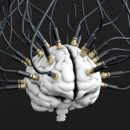Hoarding treatment: Choosing the right therapist
If you are an individual who struggles with hoarding, you might have been frustrated by negative treatment experiences in the past. For most individuals who hoard, treatment can be challenging. However, it is an essential ingredient for regaining control and reclaiming your life. When selecting a therapist to help you address your hoarding, make sure that your potential therapist practices cognitive behavioral therapy for hoarding (or CBT for hoarding). Based on research studies, this type of treatment is most likely to be effective in supporting long-term positive changes and leaving you less vulnerable to relapse. Unfortunately, there are very few South Florida psychologists who have formal experience with hoarding treatment. Make sure that when you interview your potential psychologist, you ask them about their experience in treating hoarding. A CBT orientation alone is not sufficient; make sure that they’ve treated other...
Read MoreSpecific phobias: symptoms & CBT treatment (reader question)
Question: Basically, I wanted to know from an expert, what can a phobia do to a person? How does it affect them mentally? Also I see that you’ve got a new treatment philosophy — is there any way you can talk me through it? One of the goals of cognitive behavioral therapy (CBT) is to learn to better understand the interrelationships among thoughts, feelings, and behaviors. Once you understand how these things are connected, it gives you a lot of power to implement change. Most people who seek therapy do so because they are experiencing an emotion they don’t want to have. In the case of depression, the person might feel sad. In the case of a phobia, the person might feel scared. People often have trouble modifying these feelings directly because emotions tend to be somewhat involuntary. If...
Read MoreERP therapy for OCD: Shifting from destructive to constructive to gestalt notions
Here’s a question for you: Is exposure and response prevention (ERP) fundamentally a destructive or constructive process? I think that many people naturally conceptualize it as more of the former than the latter. They conceive of ERP as being the process by which we can “unlearn” or “weaken” maladaptive associations. We learn, through repetition, to no longer be afraid of those things that previously incited fear. On the surface, this appears to be a notion predicated on destruction. In actuality, it is not. If you ever take the time to refer back to the basic animal literature on fear learning and fear “unlearning”, you’ll find that associations appear to be weakened largely as a consequence of new learning taking place. This new learning competes with (and weakens the expression of) previous learning. It is this process that accounts for...
Read MoreAdvanced ERP for OCD: how subtle rituals can limit your progress
What is exposure and response prevention (ERP) for OCD? As any good psychologist experienced in treating OCD can tell you, the most effective treatment for OCD is exposure and ritual prevention (ERP). You may also see this type of therapy referred to as exposure and response prevention. In this case, the semantics are immaterial; the concepts are exactly the same. ERP is a type of cognitive behavioral therapy (CBT) that is based on the premise that the best way to reduce your symptoms is to practice activities designed to trigger your anxiety and then resist any urges to ritualize. ERP has two main components: exposure – purposely doing activities that are designed to elicit your anxiety response prevention – actively resisting the urge to complete a ritual For example, for someone who worries about germs, an exposure might involve...
Read MoreOCD & ECT (electro-convulsive therapy): Not a first-line treatment
If your only diagnosis is OCD and you don’t have any other complicating factors, be cautious when considering electro-convulsive therapy (ECT) for treating your OCD. ECT can be a very helpful intervention for many types of conditions (e.g., severe depression, bipolar disorder, schizophrenia), but it is not considered to be a first-line treatment for OCD. Unfortunately, I have encountered several individuals recently who have undergone ECT without first receiving a good trial of exposure and response prevention (ERP). Research indicates that medication and intensive ERP should be attempted prior to undergoing ECT, unless there is a good reason why these interventions are counter-indicated. If you have OCD and you are considering ECT, consult with a psychiatrist who specializes in treating OCD. He or she can advise you about your best course of action. Questions? Comments? Sound off...
Read More







